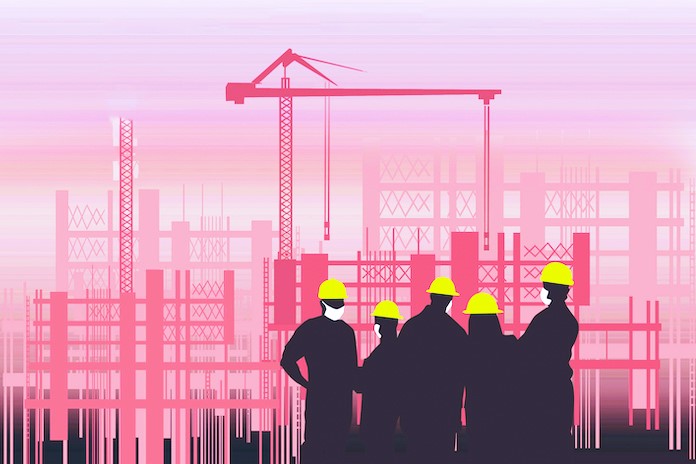Stimulating the Construction Industry: Government Discounts and the Path to Economic Recovery
The construction industry has long been recognized as a key driver of economic growth and development. As economies worldwide face the challenges posed by the COVID-19 pandemic, governments are seeking effective measures to stimulate economic recovery. Among these measures, government discounts play a vital role in rejuvenating the construction sector. By offering financial incentives, tax reductions, and permit fee waivers, governments aim to bolster construction activity, create employment opportunities, and fuel economic growth. This article explores the significance of government discounts in stimulating the construction industry and facilitating the path to economic recovery.
The Impact of the COVID-19 Pandemic on the Construction Industry
The global outbreak of the COVID-19 pandemic brought unprecedented disruptions to various sectors, and the construction industry was no exception. Lockdowns, supply chain disruptions, and labor shortages significantly affected construction projects, leading to delays, cancellations, and reduced demand. As construction is a labor-intensive industry with extensive linkages to other sectors, its slowdown had ripple effects on the broader economy.
Government Discounts as a Response to Economic Downturn

Governments worldwide recognized the urgency of mitigating the economic impact of the pandemic and devised various stimulus packages. Among these measures, government discounts emerged as powerful tools to reignite construction activity and accelerate economic recovery. By providing financial support and cost-saving opportunities, government discounts encourage builders to undertake projects, create jobs, and boost economic activity.
Types of Government Discounts in the Construction Industry
Government discounts in the construction industry can take various forms:
- Permit Fee Reductions: Municipal governments may reduce or waive permit fees for construction projects. This reduction in upfront costs makes it more financially feasible for builders to initiate projects, stimulating construction activity.
- Tax Incentives: Governments may offer tax incentives to builders, such as property tax exemptions or reductions. These incentives provide builders with significant cost savings, encouraging them to invest in new projects.
- Infrastructure Investment: Governments may allocate funds for public infrastructure projects, creating opportunities for construction companies to secure contracts and participate in large-scale developments.
- Affordable Housing Initiatives: Affordable housing programs with government subsidies or grants incentivize builders to construct housing units for low and moderate-income families, promoting social inclusion and economic stability.
- Green Building Incentives: Governments may provide discounts or rebates for builders who implement sustainable building practices and environmentally friendly technologies. The role of government subsidies in redevelopment of abandoned sites: an opportunity for builders.
Benefits of Government Discounts for the Construction Industry
The provision of government discounts offers several benefits to the construction industry and the broader economy:
- Job Creation and Employment: Stimulating construction activity through discounts leads to job creation and employment opportunities for skilled and unskilled laborers. Increased employment supports household incomes and enhances consumer spending.
- Economic Multiplier Effect: The construction industry has a significant economic multiplier effect, as the demand for construction materials, services, and related industries increases with heightened construction activity. This ripple effect bolsters economic growth in various sectors.
- Infrastructure Development: Infrastructure investment facilitated by government discounts leads to the development of essential public assets, such as roads, bridges, and utilities, which improve connectivity and promote economic efficiency.
- Increased Property Values: Construction activity driven by government discounts can lead to an increase in property values, benefiting homeowners and property investors.
- Fostering Innovation: Government discounts may encourage builders to adopt innovative construction techniques and technologies, driving progress in the industry and enhancing competitiveness.
Examples of Government Discount Programs in Canada

In Canada, various government discount programs have been introduced to support the construction industry and boost economic recovery:
- Canada Infrastructure Bank: The Canada Infrastructure Bank provides financial support to infrastructure projects that have a positive impact on economic growth and address the country’s infrastructure needs.
- Canada Emergency Wage Subsidy (CEWS): As part of the government’s COVID-19 response, the CEWS program provides wage subsidies to eligible employers, including those in the construction industry, to help retain and rehire employees.
- Home Buyers’ Plan (HBP): The Home Buyers’ Plan allows first-time homebuyers to withdraw funds from their Registered Retirement Savings Plan (RRSP) to purchase or build a home without paying income tax on the withdrawn amount.
Conclusion
Government discounts play a pivotal role in stimulating the construction industry and propelling economic recovery. By providing financial incentives, tax reductions, and infrastructure investment, governments encourage builders to initiate projects, create jobs, and contribute to economic growth. The construction industry’s revitalization has a significant multiplier effect, fostering economic activity in other sectors and supporting overall economic stability. As economies worldwide navigate the challenges posed by the COVID-19 pandemic, harnessing the power of government discounts in the construction industry becomes a critical pathway to achieving a sustainable and robust economic recovery.
SOURCES:
- Wikipedia – Economic Recovery
